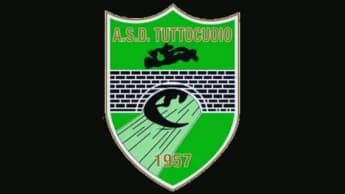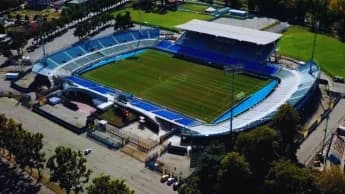
Founded in 1891, Belfast Celtic Football Club became a symbol of cultural pride and sporting excellence, leaving an indelible mark on Irish football history despite its withdrawal in 1949.
Established in 1891, Belfast Celtic Football Club stood out as a symbol of sporting excellence in Ireland, deeply rooted in a cultural identity that connected with its mainly Catholic and Irish nationalist supporters. Taking inspiration from Glasgow Celtic, the club quickly became a fundamental part of Belfast’s lively football scene, earning the affectionate nickname 'Paradise' for their stadium, Celtic Park. Despite the political unrest that often accompanied its history, Belfast Celtic was more than just a football club—it served as a representation of unity and pride within its community.
The club's exit from the Irish League in 1949 signified an abrupt conclusion for a team that had become a symbol of excellence and style. Nevertheless, its legacy continues to thrive, cherished by those who fondly recall its illustrious past. Even after officially stepping away from competitive play, the name of Belfast Celtic still resonates as a significant symbol of both sports and culture.
Achievements of the Team
Belfast Celtic boasts a prestigious array of trophies, including numerous Irish League titles. Their journey of triumph began with a victory over their longtime rivals Linfield in 1900, which set the stage for their dominance in the league. After a break, the club re-entered the league in 1924 and reached new heights by clinching four consecutive league championships.
In the 1947–48 season, Belfast Celtic achieved a remarkable European milestone by winning 31 consecutive matches across all competitions, a record that remains unchallenged to this day. Their excellence was not confined to local leagues; during a North American tour in 1949, they notably triumphed against a strong Scotland team, winning 2–0 in New York City.
Their achievements extended beyond mere trophies. The club cultivated a continuous stream of talent, producing five international goalkeepers simultaneously, highlighting their prowess in player development. This record of unyielding success and strong community involvement cemented their reputation as one of the legendary teams in Irish football.
Strengths and Weaknesses
The strengths of Belfast Celtic were rooted in their unparalleled winning mindset, a wide-ranging fan base, and their capacity to develop and attract outstanding talent. The team's victorious run during the 1947–48 season showcased their tactical ingenuity, while the deep emotional bond with their supporters granted them an unbeatable advantage on home turf at Celtic Park.
Nevertheless, their political and cultural identity became a significant weakness, exposing them to hostility and violence that went beyond the playing field. The attack on Boxing Day in 1948 highlighted their fragility in a deeply divided environment, ultimately leading to their decision to step away from competitive engagement.
While their ability to remain resilient during challenging times was impressive, their dependence on strong figures like manager Elisha Scott highlighted a possible vulnerability: the lack of solid institutional support posed difficulties for the club in tackling the broader socio-political issues that impacted their operations.
Tactics and Playing Style
The playing style of Belfast Celtic was marked by creativity, discipline, and a commitment to technical proficiency. Their tactical adaptability allowed them to achieve success in various competitions and across different periods. This team's consistent strategy of building plays from the back and capitalizing on spaces through quick counterattacks was pioneering for its time.
In their memorable matches, particularly the 1949 triumph over Scotland, the team showcased precise finishing and strong defensive structure, effectively competing against more formidable opponents. Their approach to nurturing adaptable players, particularly goalkeepers, highlighted their strategic vision.
The effectiveness of managerial leadership was pivotal in shaping their strategies. Elisha Scott prioritized teamwork and tactical adaptability, enabling the team to navigate high-pressure scenarios with skill. This ability to adjust became a defining characteristic of their success during the peak of their era.
Memorable Matches
One of the most memorable matches in Belfast Celtic's history is their league-deciding victory over Linfield in 1900, which marked a pivotal moment in their ascent to prominence. The hard-fought 1-0 win highlighted their resilience and determination to establish themselves as champions.
The Boxing Day match in 1948, although overshadowed by violence, stands as a significant moment in the club’s history. In spite of the regrettable events, it underscored the fierce nature of their rivalries and the fervent support they garnered.
The 1949 victory against Scotland in New York, where they bested a team that had just secured a British Isles Triple Crown, highlighted their tactical brilliance and international prominence. This game became an iconic moment of pride for Irish football on the world stage.
In their last league game in April 1949 against Cliftonville, which ended in an exhilarating 4–3 victory, the essence of the club was perfectly captured. This match signified the conclusion of a significant chapter while reinforcing their legacy as unwavering contenders.
Looking Ahead
Although Belfast Celtic officially stepped back from competitive football in 1949, their impact is still felt today. The legacy of the club lives on through various historical reviews, documentaries, and the cherished memories of supporters who share their narratives across generations.
Initiatives to commemorate the club's legacy feature the creation of memorials and cultural projects that celebrate their successes. These endeavors ensure that their influence continues to inspire future generations of Irish football fans.
Although Belfast Celtic will not be returning to competitive football, their impact remains significant, especially in conversations surrounding the relationship between sport and identity. As contemporary clubs navigate socio-political challenges, Belfast Celtic stands as a powerful reminder of the struggles and the unifying effect that football can have.
The absence of Belfast Celtic has never been completely filled. Nevertheless, their narrative continues to foster a shared belief in the lasting power of sports as a means of unity and pride within the community.





